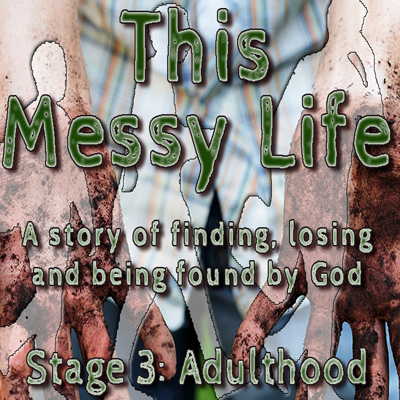THIS MESSY LIFE: BECOMING AN ADULT - PART 3
STARTING OVER
Sunday, November 17, 2019
Isaiah 5:1-7, 11:1-5; Mark 12:1-3
What more was there to do for my vineyard that I haven’t done for it? When I expected it to grow good grapes, why did it grow rotten grapes?
Isaiah 5:4
Let’s start this week with a reality check. We have all produced rotten grapes.
Now that that is out of the way, we can deal with the real issues around this beautiful and yet painful song of God’s vineyard. The question in verse 4 is the crux. The owner of the vineyard asks, “What more could I have done?”
There is no answer.
If we don’t begin with the confession that we have produced rotten grapes, it becomes very easy to look out all of those “other people” outside of the church and pose this question to them. To the atheist we may ask, “What more could God do to make you believe?” To the criminal we can ask, “What more could God do to make you repent?” To the younger generation who appears to have bailed on church and who we love to use as a scapegoat for all the problems of the world, we might ask, “What more could God do to get you to appreciate how good you have it and come back to church?”
If we want to use the Bible as a weapon, this is a great question to start with. It can be framed in so many different ways but no matter what we end up with the same conclusion. In summary, it goes something like this.
In Christ, God did everything possible to show us how much we are loved.
We, the good “Christian” people, responded appropriately to that love by “believing in the name of Jesus” and “getting saved.”
All of those “unsaved” people have rejected God’s love and there is no excuse. They deserve whatever they get.
We probably would not say it so bluntly, but think about the implications of the way we live our lives. Do we spend more time showing love to those outside the church or complaining about the way we think they live? After we “got saved,” how have we actually taken up our crosses and followed Christ as his disciples? How are we making disciples of others and fulfilling the Great Commission?
The songwriter in Isaiah does not explicitly say that the owner of the vineyard is God. The first explicit hint we get comes at the end of verse 6 when the owner commands the clouds not to rain on the vineyard. Only God has authority over the rain. Until this point, it would be easy to accuse anybody else of bearing rotten grapes and offending such an incredible caretaker.
But by verse 7 we see that this vineyard which fails to bear good fruit is not the “other.” It is the house of Israel and the people of Judah in whom God delighted. Let us not become so overconfident in our own privileged position as “God’s children” that we forget to take responsibility for our own failures before God.
Perhaps we as a church should spend less time criticizing everyone else’s vineyard and start realizing that God has allowed the thorns and thistles to grow up and choke out our own branches.
What more could God do indeed?
What more can God do to convince us that we are the ones failing to produce the good fruit he has for us to bear for the sake of the world?

